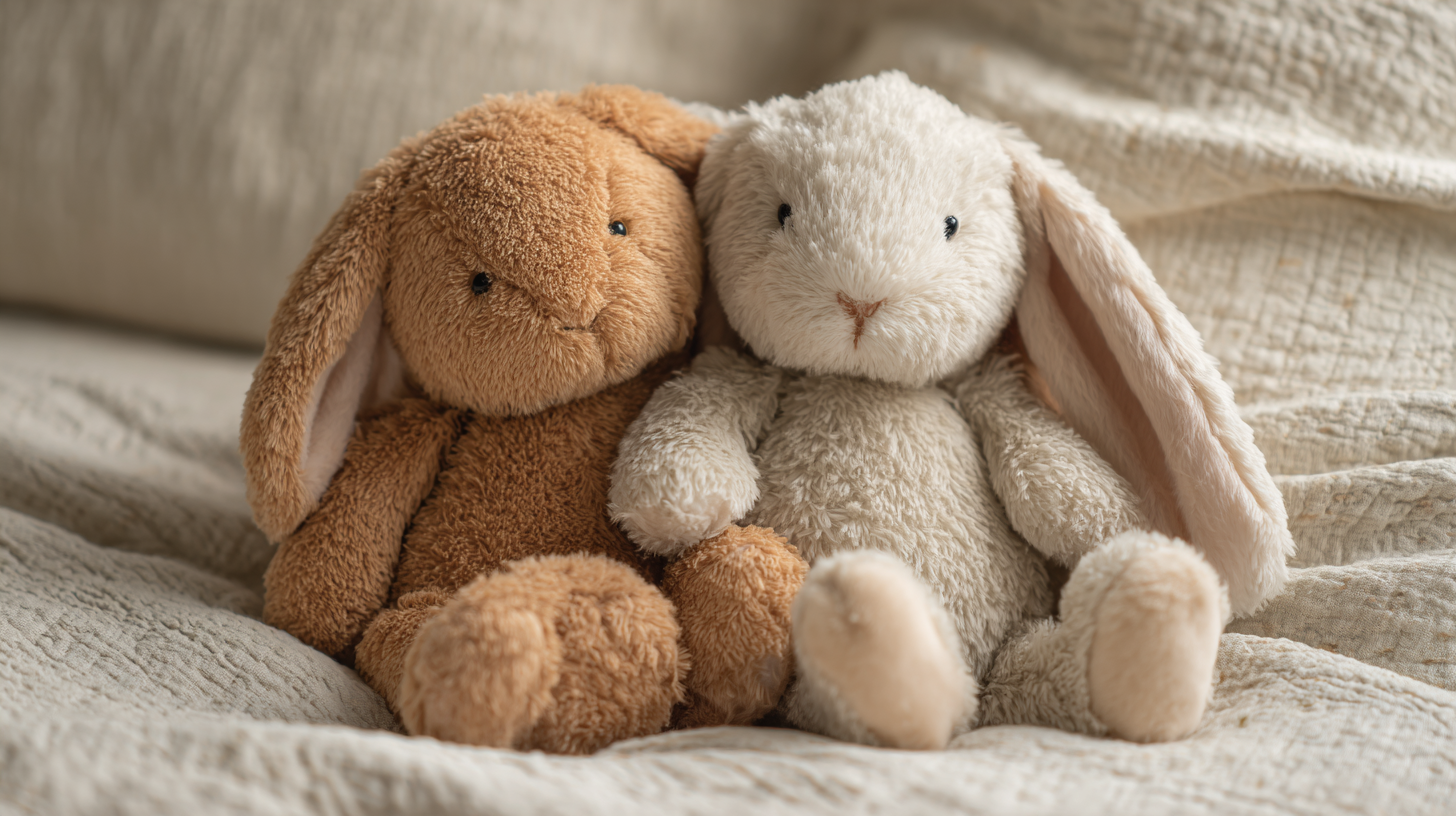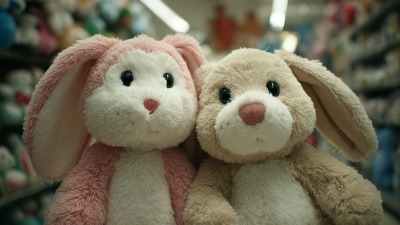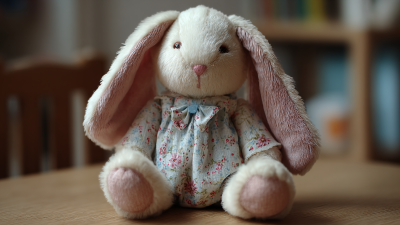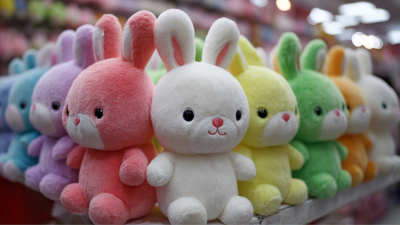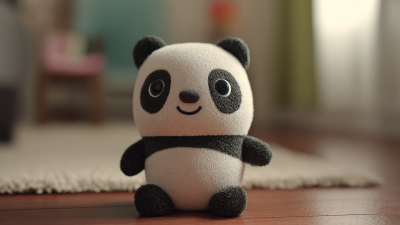In the realm of childhood emotional development, plush companions, particularly
Rabbit Soft Toys, play an indispensable role in fostering a child's well-being.
According to a study by the American Academy of Pediatrics, children who engage with soft toys
exhibit enhanced emotional regulation and empathy as they often project their feelings onto these inanimate friends.
Furthermore, a report by the University of California highlighted that over
75% of children form strong attachments to their soft toys, which serve as a
source of comfort during challenging times.
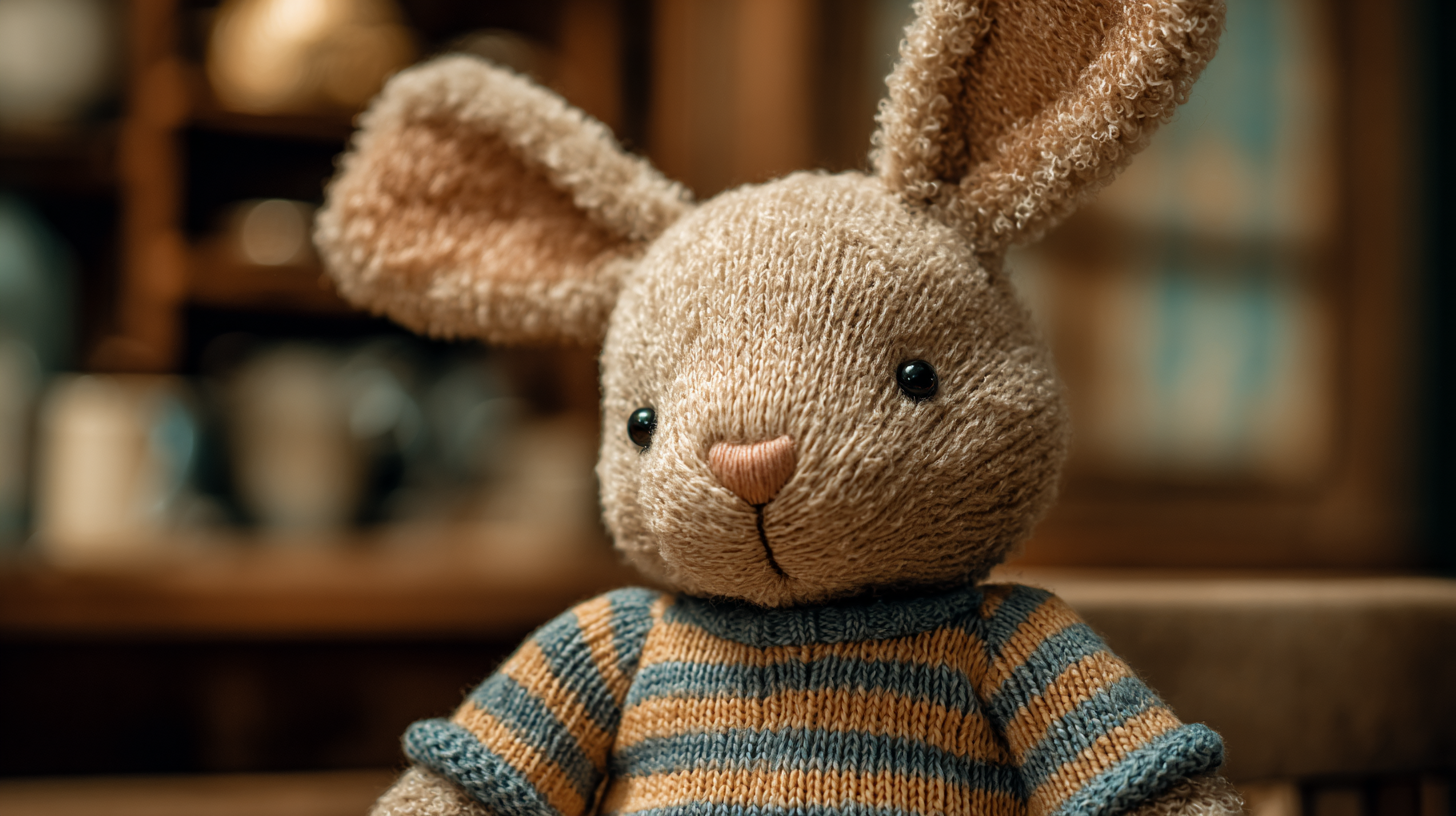 Rabbit Soft Toys, with their soft textures and endearing designs, not only alleviate anxiety and loneliness but also become pivotal
tools for imaginative play and social skills development. In light of these findings, it becomes clear that incorporating a
Rabbit Soft Toy into a child's life is more than just a matter of preference; it is a vital
step towards nurturing their emotional health and resilience.
Rabbit Soft Toys, with their soft textures and endearing designs, not only alleviate anxiety and loneliness but also become pivotal
tools for imaginative play and social skills development. In light of these findings, it becomes clear that incorporating a
Rabbit Soft Toy into a child's life is more than just a matter of preference; it is a vital
step towards nurturing their emotional health and resilience.
Rabbit soft toys hold a special place in the hearts of many children, offering psychological comfort and fostering emotional development. These cuddly companions serve as a source of security, helping children navigate their feelings during times of stress or change. The soft texture and friendly appearance of rabbit toys can soothe anxiety, providing a reliable outlet for young ones to express their emotions. When children hug or play with their soft toys, they often feel a sense of companionship, which alleviates feelings of loneliness.
Tips for choosing the perfect rabbit soft toy include selecting one with a texture that feels comforting to your child. Look for toys that are machine washable to ensure they can be kept clean and hygienic. It's also beneficial to choose a rabbit soft toy that is appropriately sized for your child, making it easy for them to hold and cuddle. Encourage your child to engage in imaginative play with their rabbit, creating stories or adventures that enhance their emotional learning.
Additionally, involving your child in the selection process can strengthen their attachment to the toy. Ask them what features they like best or if they want to personalize the toy with a name. This connection not only promotes emotional growth but also reinforces the understanding that expressing feelings is a healthy part of childhood development.
Soft toys, such as rabbit companions, play a crucial role in fostering empathy and nurturing skills in children. According to a study published in the journal "Child Development," children who engage in pretend play with soft toys exhibit higher levels of emotional understanding and social skills. The act of caring for a cuddly companion allows children to explore emotions and practice empathy by projecting their feelings onto the toy, creating a safe space to experiment with relationships and social dynamics.
Furthermore, the American Academy of Pediatrics highlights that nurturing behavior is essential in early childhood development, influencing how children interact with peers and form relationships. By caring for a soft toy, children learn to recognize and respond to the emotional needs of others, which lays the foundation for healthy interpersonal relationships later in life. Research shows that children with strong nurturing skills tend to perform better in social settings and develop greater emotional intelligence, underscoring the importance of cuddly companions like rabbit soft toys in shaping a child's emotional landscape.
When it comes to fostering imagination and creativity in children, plush rabbit toys stand out as exceptional companions. These cuddly friends not only offer comfort but also serve as powerful tools for imaginative play. Research indicates that engaging with soft toys can significantly boost a child's creative thinking skills, as they often embody traits and scenarios that children can explore through storytelling and role play. Pediatric development experts recommend integrating such toys into playtime routines to inspire emotional and cognitive growth.
**Tips for Enhancing Imaginative Play:**
- Encourage your child to create stories about their plush rabbit. Ask questions to spark their imagination, like, "What adventures does your bunny go on today?"
- Set up playdates with other plush friends to encourage social skills and collaborative storytelling. This fosters not only creativity but also cooperation and empathy as children learn to share and imagine together.
In today's market, options range from ultra-soft realistic bunnies to interactive plush toys that mimic real animal behaviors. Children thrive in environments where they can freely express themselves, and these plush companions provide a safe space to experiment with different emotions and scenarios, making them not just toys, but essential tools for healthy emotional development.
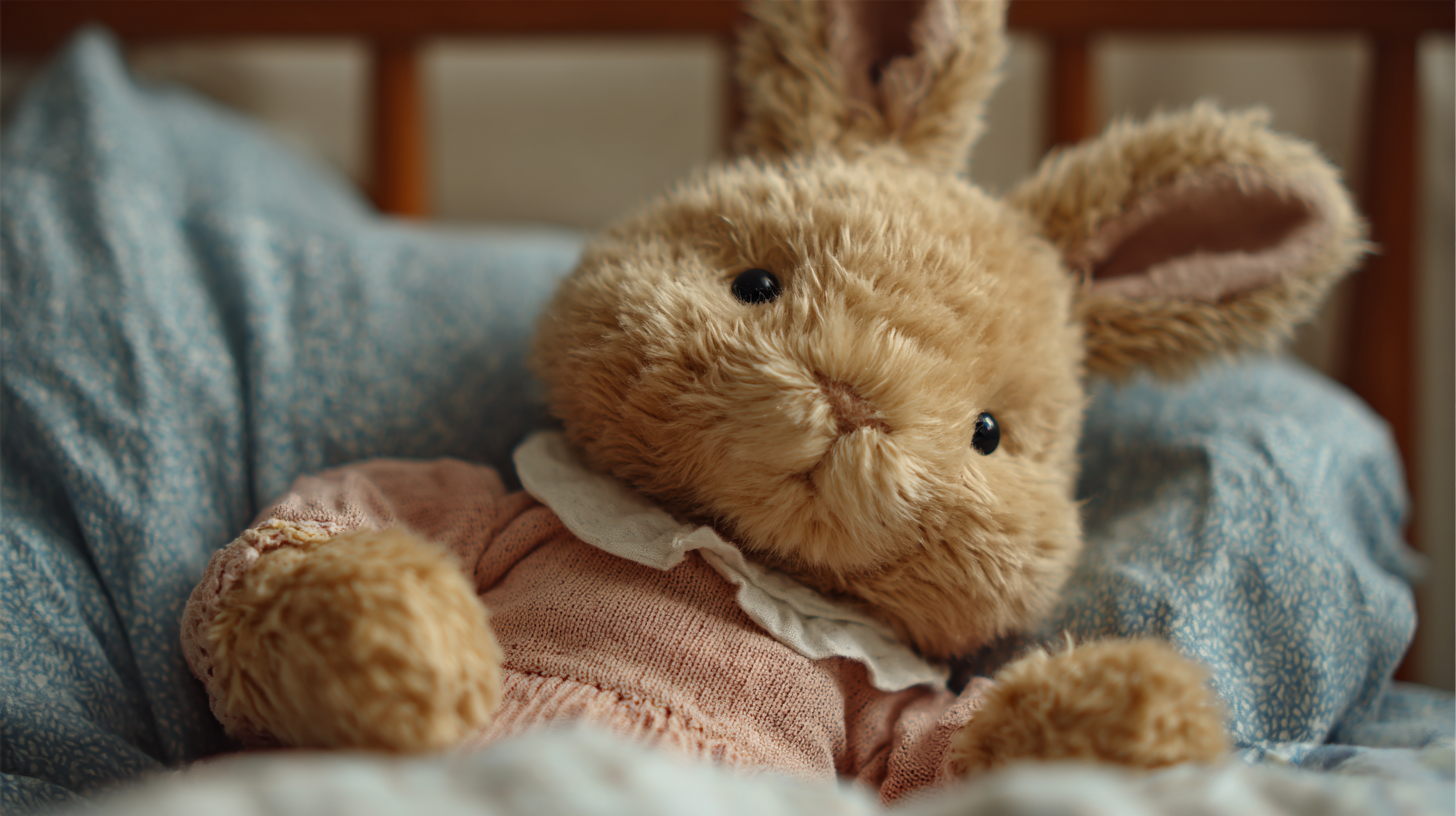
Soft toy companions, such as rabbit plushies, play a crucial role in building security for children, helping them navigate the complex world of emotions. These cuddly toys serve as a safe outlet for children's feelings, providing comfort during moments of distress or uncertainty. When children hug or talk to their soft toys, they engage in a form of self-soothing that can significantly alleviate anxiety. This emotional support system enables them to confront fears and challenges, fostering resilience as they learn to cope with various situations.
Moreover, the presence of a beloved rabbit soft toy can create a sense of stability in a child's life. The familiarity of a cuddly companion can be particularly beneficial during times of change, such as starting school or dealing with family transitions. By offering a constant presence, these toys help reduce feelings of isolation and promote a secure attachment. As children interact with their soft toys, they develop essential social-emotional skills, learning to express their feelings and nurture empathy. This interplay between the child and their toy cultivates a supportive environment, laying the foundation for healthy emotional development.
| Benefit | Description | Impact on Children |
|---|---|---|
| Emotional Security | Soft toys provide a sense of safety and comfort for children. | Helps children cope with stress and fosters resilience. |
| Anxiety Reduction | Cuddly companions can help soothe anxious feelings. | Promotes emotional regulation in challenging situations. |
| Social Skills Development | Interacting with a soft toy encourages imaginative play. | Improves communication and empathy skills. |
| Comfort During Transition | Soft toys can help during new experiences, like starting school. | Eases fear of the unknown and enhances adaptability. |
| Development of Routine | Having a designated soft toy helps create a bedtime routine. | Encourages a sense of stability and predictability. |
Rabbit soft toys serve as more than just comforting companions for children; they play a crucial role in fostering social skills and friendship development. When children engage in imaginative play with their stuffed rabbits, they often create elaborate scenarios that encourage cooperative play and communication. In these settings, children learn to share, negotiate roles, and express their feelings. These experiences are instrumental in building empathy, as children practice understanding their toy's perspectives and emotions, which translates into better social interactions with peers.
Moreover, rabbit soft toys can act as a bridge in forming friendships among children. Sharing a favorite toy can break the ice, providing common ground for kids to connect. This shared interest often leads to conversations and collaborative play, essential components of friendship building. As children bond over their affection for their cuddly companions, they develop vital interpersonal skills, such as teamwork and conflict resolution. In essence, rabbit soft toys not only soothe children during solitary moments but also enrich their social lives, laying a strong foundation for healthy relationships in the future.
